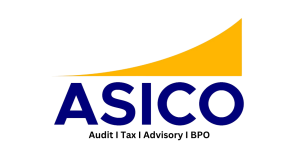- About Us
Overview
We are an award-winning advisory and accounting firm. We use our knowledge and experience to ensure your financial success.
- Our People
- Our Services
- Industries
- Career
- Insights
- Event And Gallery
- About Us
Overview
We are an award-winning advisory and accounting firm. We use our knowledge and experience to ensure your financial success.
- Our People
- Our Services
- Industries
- Career
- Insights
- Event And Gallery
Education and Health
Health
The pharmaceutical industry in Bangladesh is highly advanced, producing a wide range of medications, including complex products such as insulin, hormones, and anticancer drugs. It is the second largest revenue generator in the country, with total pharmaceutical exports amounting to USD 169 million. Local pharmaceutical companies export to 151 countries, with Sri Lanka being the predominant destination. The industry has shown progress despite economic challenges and caters to 98% of the nation’s medicinal demands
The government’s decision to establish an API Park in Munshiganj, covering a 200-acre site, is a proactive step. The API policy aims to reduce reliance on imported raw materials and increase API export revenue. With 27 companies securing plots within the API Park, including pioneering enterprises like ACME Laboratories and Healthcare Pharmaceuticals, the industry is poised for significant growth. The NBR’s issuance of a Statutory Regulatory Order (SRO) providing conditional tax benefits and proposed reduction in tax rates for imported APIs demonstrate the government’s support for the pharmaceutical sector. Continued support and the right incentives are needed to accelerate API production, fostering a flourishing pharmaceutical sector driven by increasing demand for medication.
The domestic pharmaceutical industry fulfills 98% of the nation’s demand and exports products to 150 foreign markets, including developed nations. It remains strong in the face of economic and political uncertainties. Adherence to international standards, regulatory approvals, and expanded medicine exports are significant developments. The Middle and Affluent Class (MAC) population is projected to reach 17% of the total population by 2025, up from 7% in 2015, leading to increased pharmaceutical demand. Year-on-year sales increased by 9.9% in FY23, reaching $X billion. The sector is experiencing increased exports, especially in the US, Australia, and the European Union, indicating a favorable outlook for the current fiscal year.
The domestic pharmaceutical industry fulfills 98% of the nation’s demand and exports products to 150 foreign markets, including developed nations. It remains strong in the face of economic and political uncertainties. Adherence to international standards, regulatory approvals, and expanded medicine exports are significant developments. The Middle and Affluent Class (MAC) population is projected to reach 17% of the total population by 2025, up from 7% in 2015, leading to increased pharmaceutical demand. Year-on-year sales increased by 9.9% in FY23, reaching $X billion. The sector is experiencing increased exports, especially in the US, Australia, and the European Union, indicating a favorable outlook for the current fiscal year.
